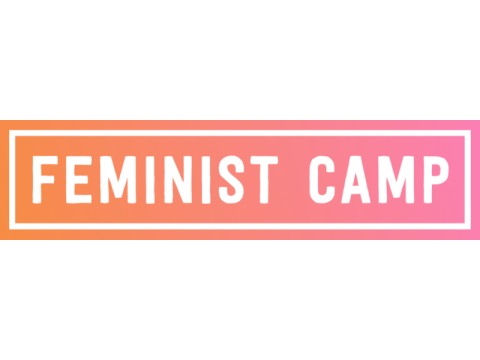Feminist Camp: My Black Feminist Perspective
- Name: Juharah Merima Worku
- Major(s)/Minor(s): Africana Studies and Political Sciences
- Career Interest: Law/Public Policy
Feminist Camp was a microcosm of feminism itself – an environment in which women and people navigated the complex social and political terrain of their individual experiences and attempted to contextualize these in a greater framework. Throughout the week, I was able to explore the city of New York alongside peers of my age. Our group of women and people hailed from a variety of backgrounds and included high school and college students, graduate students, and community organizers. Together, we were able to meet with professionals who described their own professional and personal relationships to feminism. The week contained critical conversations about what feminism in 2020 meant to us as participants seeking to engage in careers that leave a positive impact upon the communities we hailed from.
I was cautiously optimistic with my own expectations entering this week and camp, as my personal relationship to feminism has been precarious at best. Although I believe myself to be a staunch supporter of gender equity, feminist discourses and movements have often excluded members based upon their race, sexual orientation and even gender. I still recall the shock I felt as a high school student learning about the [white] women’s suffrage movement that Susan B. Anthony stated, “I will cut off this right arm of mine before I will ever work or demand the ballot for the Negro and not the woman”.
At times, the phrase, “As women…” surfaced in discussions concerning the realities of gender-based discrimination. In my mind, this raised an insidiously present question – which women? Which women are in the socioeconomic positions to access spaces such as the ones afforded to the young feminists amongst us, and who are not? What disservice is done to the experiences of Black, Brown and gender non-conforming people in conversations where the experiences of womanhood are universalized?
Justyne Moore, the Director of Participatory Defense for the National Council for Incarcerated and Formerly Incarcerated Women and Girls, spoke to the camp about the work in which they engage with their communities and dare to reimagine justice within them. In discussing the intentional engagement intrinsically present within her work, she collectively called us to use the various positions or spaces of power we occupied to amplify voices that may have been silenced due to systemic racial and gendered oppression.
Thus, the cautious optimism in which I entered the camp allowed me to recognize the abundance of opportunities made available to me and other participants, while simultaneously recognizing who was not present in the room. I remain grateful to the Newcomb Institute and Soapbox for the opportunity to participate in a program that connected me with a diverse array of women who integrated feminist ethos in their career paths. It was incredible to be able to engage with women and people who were my age asking themselves the same critical questions about the impact they leave in the world. The speakers and events set the stage for meaningful discourse, and affirmed me in the belief that there are young people who are ready to be catalysts for positive social change.

